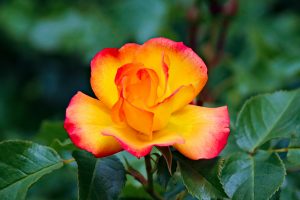 When I first started meditation, I thought the practice was just about developing greater awareness. To be honest, at a certain point I recognised that I was developing a cool (maybe even sometimes a cold) clinical awareness to my life. I had fallen into what I later discovered was a familiar trap – treating meditation as a technique for self-improvement and relating to the practice primarily cognitively rather than wholeheartedly. Slowly, it dawned on me that how we sense ourselves and others matters – the attitude and inner qualities we cultivate literally changes what we sense (see, hear, touch, smell, taste, feel) and therefore how we respond to ourselves and the world.
When I first started meditation, I thought the practice was just about developing greater awareness. To be honest, at a certain point I recognised that I was developing a cool (maybe even sometimes a cold) clinical awareness to my life. I had fallen into what I later discovered was a familiar trap – treating meditation as a technique for self-improvement and relating to the practice primarily cognitively rather than wholeheartedly. Slowly, it dawned on me that how we sense ourselves and others matters – the attitude and inner qualities we cultivate literally changes what we sense (see, hear, touch, smell, taste, feel) and therefore how we respond to ourselves and the world.
Warmth, kindness, mercy and compassion are the qualities which release the richness, depths and mystery of life and sustain us in life’s challenges. These are not esoteric qualities. They are universally available gifts which we can access and cultivate through our daily practice and which naturally flow into the rest of our lives.
My favourite Christian theologian, the late Marcus Borg, said that compassion is the central quality of God and the central moral quality of a life centred in God. (If God is a difficult word for you, substitute whatever word points to the Ultimate Mystery which is beyond all names). Compassion is a golden thread that runs through the gospels: “Be compassionate as God is compassionate” (Luke chapter 6, verse 36). For Jesus, compassion wasn’t just an individual virtue but the heart of a new world – a new ordering of politics, community, economics and spirituality – in religious language Jesus referred to this new way of being as the ‘kingdom of God’. In the Buddhist tradition, like many spiritual traditions, cultivating compassion is fundamental to walking the spiritual path. His Holiness the Dalai Lama famously said that “compassion is my religion”.
Mindfulness and compassion are closely related siblings. Mindfulness is the foundational practice strengthening our capacity to see more clearly the nature of our experience. Slowly, week by week, we learn to meet our experience – our bodily sensations, thoughts and feelings – with a warm curiosity and, as best we can, a non-judgemental attitude. If we can see reality more clearly then we can respond more skilfully, wisely and compassionately. We begin to develop our ‘observer’ capacity – witnessing our life as we live it not just being consumed by our experience. Compassion is the flowering that naturally arises from the growing awareness of the interdependence and relatedness of all life. We recognise that we are not alone, we are not the star of the show, but instead we are a treasured member of a vast circle and cycle of life that began 13.8 billion years ago and continues to evolve today.
With a regular practice in community, we re-member, attune and retune, to the reality of our common humanity and our shared life with all living beings in this home we call earth. Slowly and falteringly, we learn that cultivating self-kindness and self-compassion is the essential complement and grounding enabling us to extend kindness and compassion to others.
You are welcome to join our community of practice any Tuesday (7.45am-8.30am) or Saturday (8am-9am). Our current focus in our weekly Tuesday meditations is on compassion. Sign up on Meet Up or send us an email for the zoom link.
John Watters, Co-Founder, Centre for Spirituality
Photo by Dušan veverkolog on Unsplash
